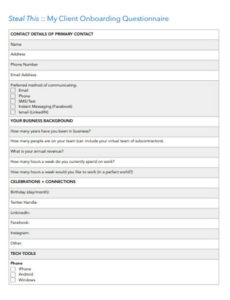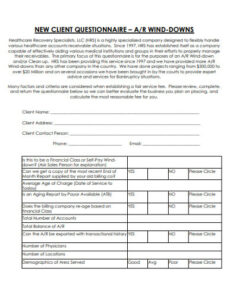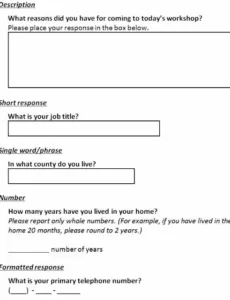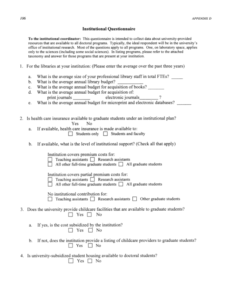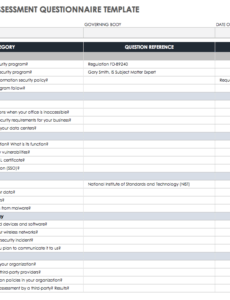Navigating the complexities of tax season can be a daunting task for both clients and preparers alike. With ever-evolving tax laws and increased scrutiny from regulatory bodies, the importance of robust due diligence cannot be overstated. It’s not just about accurately inputting numbers; it’s about understanding the full financial picture of your client, ensuring compliance, and ultimately safeguarding your practice from potential penalties and reputational damage.
A well-structured approach to gathering client information is fundamental to this process. It helps tax professionals identify potential red flags, verify claims, and ensure that all necessary information is collected to prepare an accurate and compliant tax return. This proactive stance is crucial for delivering quality service and maintaining professional integrity in a highly regulated environment.
Why a Tax Preparer Due Diligence Questionnaire Template is Non-Negotiable
In the world of tax preparation, thorough due diligence isn’t merely a best practice; it’s a critical requirement that protects both you and your clients. The IRS takes due diligence very seriously, particularly concerning certain credits and deductions like the Earned Income Tax Credit (EITC), Child Tax Credit (CTC), American Opportunity Tax Credit (AOTC), and Head of Household filing status. Failure to meet these standards can result in significant penalties for preparers, ranging from fines to suspension of their Preparer Tax Identification Number (PTIN). A comprehensive tax preparer due diligence questionnaire template acts as your first line of defense, ensuring you ask the right questions every time.
Beyond avoiding penalties, a standardized questionnaire helps build a foundation of trust with your clients. It demonstrates your commitment to accuracy and compliance, reassuring them that their tax matters are handled with the utmost care. It transforms what could be an overwhelming information-gathering process into a structured, efficient conversation, making sure no stone is left unturned. This systematic approach saves time, reduces errors, and minimizes the need for follow-up questions, leading to a smoother experience for everyone involved.
Moreover, the consistent application of a due diligence questionnaire across all clients ensures fairness and equity in your practice. It helps establish a uniform standard for information collection, regardless of the client’s background or the complexity of their tax situation. This uniformity is vital for maintaining professional standards and can be invaluable if your practice ever faces an audit or review. It provides a clear audit trail of the steps taken to verify client information and claims.
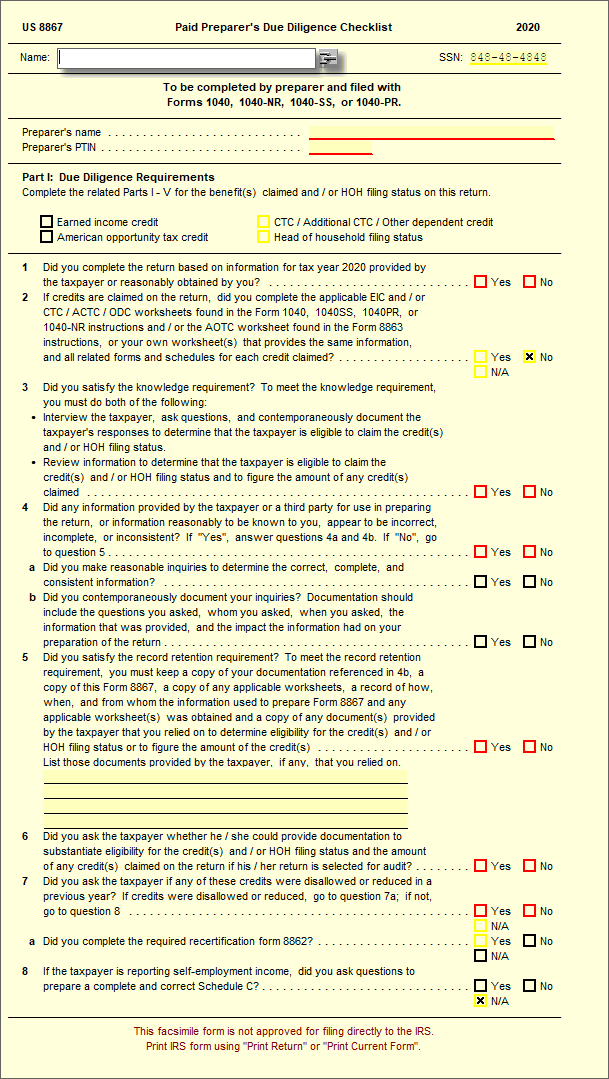
Ultimately, a robust due diligence process, spearheaded by an effective tax preparer due diligence questionnaire template, is an investment in your practice’s long-term success. It’s about proactive risk management, reputation protection, and fostering a practice built on accuracy and compliance. This isn’t just about ticking boxes; it’s about a deep dive into the information that forms the basis of a correct and compliant tax return.
Key Elements to Include in Your Due Diligence Questionnaire
- Client Identity Verification: Confirming the identity of all taxpayers, spouses, and dependents.
- Income Sources: Detailing all forms of income, including W-2s, 1099s, foreign income, and less obvious sources.
- Deductions and Credits Justification: Requiring documentation and explanation for all claimed deductions, credits, and filing statuses, especially those frequently scrutinized by the IRS.
- Dependency Claims: Verifying relationship, age, residency, and support tests for all claimed dependents.
- Prior Year Tax Issues: Inquiring about previous audits, unfiled returns, or unresolved tax matters.
- Foreign Assets and Income: Ascertaining any foreign bank accounts or assets that require reporting.
- Business Expenses and Income: For self-employed clients, a detailed breakdown of all business revenue and expenses, along with supporting documentation.
- Life Changes: Questions about significant life events (marriage, divorce, birth, death, home purchase/sale) that impact tax situations.
Implementing and Customizing Your Due Diligence Process
Once you have a robust tax preparer due diligence questionnaire template, the next step is effectively integrating it into your workflow. It’s not enough to simply hand a client a form; the questionnaire should be a foundational part of an ongoing, interactive discussion. Encourage clients to complete as much as possible before their appointment, but be prepared to guide them through any sections they find confusing or challenging. This interaction allows you to clarify information, ask follow-up questions, and gain a deeper understanding of their financial circumstances, which a mere checklist cannot provide.
Customization is also key. While a standard tax preparer due diligence questionnaire template provides a strong base, your practice serves diverse clients with varying needs. Consider creating different versions or modules of the questionnaire for specific client types, such as self-employed individuals, rental property owners, or clients with international income. This tailored approach ensures that you gather relevant information without overwhelming clients with irrelevant questions, streamlining the process for both parties and demonstrating your specialized expertise.
The questionnaire should serve as a dynamic tool that evolves with changes in tax law and your practice’s experience. Regularly review and update the questions based on new IRS guidance, common errors you encounter, or areas where clients frequently misunderstand requirements. This continuous improvement ensures your due diligence remains effective and up-to-date, protecting you from emerging risks and helping you provide the most accurate advice.
Remember, the purpose of due diligence extends beyond just data collection. It’s about establishing reasonable doubt and exercising professional skepticism. If something seems unusual or too good to be true, the questionnaire should prompt you to dig deeper. Documenting these additional inquiries and the client’s responses is just as important as the initial information gathering, providing a comprehensive record of your efforts to ensure accuracy and compliance. This meticulous record-keeping is vital should questions arise from tax authorities in the future.
Utilizing a comprehensive approach to client information gathering is more than just compliance; it’s about building a resilient and reputable tax practice. By consistently applying thorough due diligence practices, rooted in a well-designed questionnaire, you protect your clients, uphold your professional integrity, and ensure the accuracy of every tax return you prepare. This diligent effort cultivates client trust and sets your practice apart as a reliable and expert resource in the complex world of taxation.

